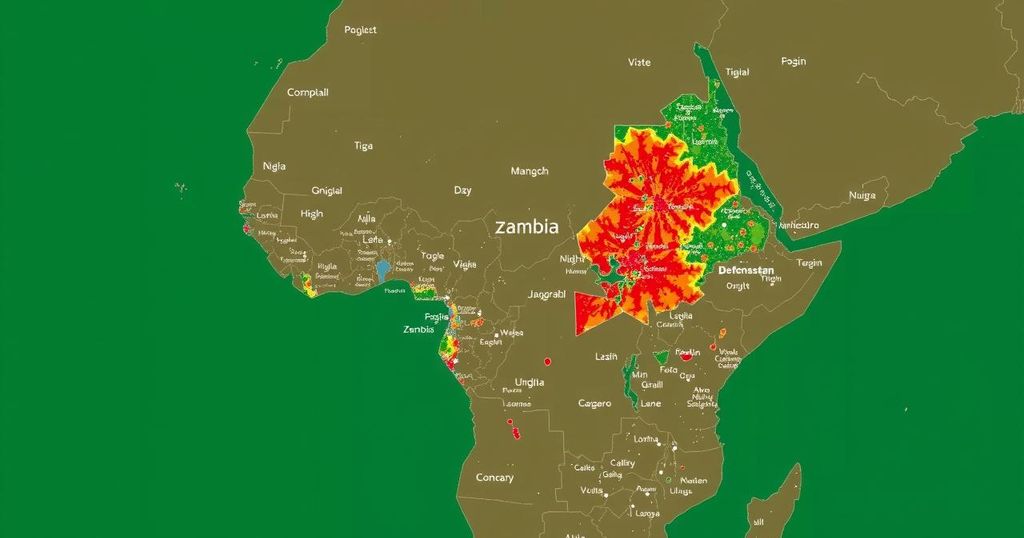Climate Shocks and Economic Resilience: Insights from Zambia’s Formal Sector
The UNU WIDER Working Paper 2024/71 examines how climate shocks affect firm performance and tax revenue in Zambia, revealing significant declines in sales and tax collection due to extreme weather events. The study highlights the importance of analyzing the effects of climate on both economic productivity and government revenue in low-income countries, where taxation plays a crucial role in public finance.
The UNU WIDER Working Paper 2024/71, authored by Kwabena Adu-Ababio, Evaristo Mwale, and Rodrigo Oliveira, investigates the intersection of climate shocks and economic performance in Zambia’s formal sector. This research, utilizing firm-level data, reveals that severe weather conditions such as excessive rainfall and elevated temperatures adversely impact company operations. Specifically, these climate anomalies lead to substantial declines in sales, input purchases, and tax revenues across critical sectors, including manufacturing, retail, accommodation, and construction. Furthermore, firms responding to these climatic challenges often reduce their workforce and wages, indicative of lowered productivity. This paper emphasizes the imperative to scrutinize the dual ramifications of climate events on productivity and tax revenue within the context of lower-income nations, where government finances are particularly vulnerable to fluctuations in tax contributions stemming from services and goods.
Low-income nations frequently grapple with the dual challenges of climate-induced disruptions and constraints in domestic revenue mobilization. Despite the substantial impact these factors could have on local economies, there has historically been insufficient analysis integrating both climate issues and economic resilience. This working paper from UNU WIDER addresses this gap by focusing on Zambia, a nation where weather variations significantly influence firm performance and government tax revenue, ultimately shedding light on the critical interdependencies that exist within these dynamics.
The findings of this paper underscore the vital need for policymakers in developing countries, such as Zambia, to account for the repercussions of climate shocks on economic sectors and fiscal health. By illustrating how extreme weather adversely affects firm performance and tax revenues, this research advocates for a more integrated approach to addressing climate impacts within the economic planning and resilience strategies of low-income countries. Understanding these interconnected effects is crucial for fostering sustainable economic growth in the face of environmental uncertainties.
Original Source: reliefweb.int




Post Comment